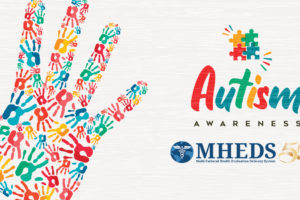
Cavities, sometimes called caries or tooth decay, are a common chronic childhood disease. They can lead to pain, infection, feelings of unhappiness, and problems eating, speaking, and even learning. February is National Children’s Dental Health Month, a time when the American Dental Association, healthcare providers, and educators promote the benefits of good oral health to children, their caregivers, teachers, and others. This month-long observance is a time to focus on the importance of good oral health habits, especially how to prevent cavities.
The hard outer surface of the teeth is made of enamel and dentin, two materials which contain a lot of calcium. Cavities happen when bacteria in the mouth metabolize sugar and produce acid that eats away at the enamel and dentin.
Children and adolescents are at higher risk for cavities than adults. More than 1 in 5 children aged 2 to 5 years will have a cavity in one of their baby teeth (also called primary teeth). More than half of children aged 6 to 8 have had at least one cavity in their baby teeth. And more than half of adolescents aged 12 to 19 have had a cavity in at least one of their permanent teeth.
Children and adolescents are at higher risk for cavities than adults.
But with good dental health habits, cavities are easily preventable. Teaching children good habits and good attitudes about dental health at an early age can help them maintain good oral health for a lifetime. And looking after your own dental health can help, too.
There are a few simple ways for parents and caregivers to prevent cavities in children. The Centers for Disease Control and Prevention and the American Academy of Pediatrics recommend the following:
For Babies
- After each meal, gently wipe your baby’s gums with a soft, clean cloth.
- Avoid putting your baby to bed with a bottle.
- Schedule your child’s first dental visit by their first birthday, or when their first tooth appears.
For Children
Gently brush your child’s teeth twice each day with a soft, small-bristled toothbrush. When your child is old enough to brush on their own, and until around age 6, watch them while they brush. Make sure they use only a pea-sized amount of toothpaste and that they spit out the toothpaste instead of swallowing it.
Fluoride is a mineral that strengthens the outer surface of teeth. Children who brush their teeth each day with fluoride toothpaste will have fewer cavities. But for children under age 2, use plain water to brush. Talk to your dentist or doctor about when to begin using fluoride toothpaste.
Healthy Diet, Healthy Teeth
A healthy diet is essential for good oral health. Getting plenty of calcium and avoiding sugary foods and drinks will help keep children’s teeth strong.

Good sources of calcium include dairy, such as milk, cheese, and yogurt; greens such as spinach, collard greens, kale, bok choy, and broccoli; and even canned black beans.
The American Academy of Pediatrics (AAP) recommends that children aged 1-3 years get 700mg of calcium per day. That is about as much calcium as in two servings of milk. For children aged 4-8 years, AAP recommends 1,000mg per day, or about three servings of milk. And for children aged 9-18, about four servings of milk per day, or 1,300mg of calcium, is recommended. Find information about calcium on the nutrition label of packaged foods.
Added sugar in foods and drinks feed the bacteria that cause cavities. It’s important to limit drinks and foods that have added sugars, especially for children. Favor water instead of juice or soda, especially at mealtimes. And for a sweet treat, fruits and vegetables are much better for oral health – and overall health – than cookies, candies, or even fruit drinks.
Pregnancy
Good oral health begins before a baby is even born. A pregnant person’s oral health habits can have a lasting effect on their child’s oral health. Gum disease during pregnancy can harm the mother’s health and may be linked to low birth weight in babies. Mothers can unintentionally pass cavity-causing bacteria to newborns. And children are three times as likely to have cavities if their mothers have high levels of untreated tooth decay.
A pregnant person’s oral health habits can have a lasting effect on their child’s oral health.
During pregnancy, it’s important to make and keep regular dental appointments, and consult with a dentist or doctor about ways to prevent or manage dental problems. Brush your teeth with fluoride toothpaste at least twice each day. Drink fluoridated tap water every day. If you experience nausea, after you get sick, rinse your mouth with 1 teaspoon of baking soda mixed in a glass of water. This will help wash stomach acid away and keep tooth enamel safe.
Dental Sealants
Most childhood cavities occur in the back teeth which, even with careful daily brushing, can be hard to reach. Dental sealants are an easy, quick, and pain free way to prevent cavities. Dental sealants can be applied to the chewing surfaces of the back teeth, and they prevent 80% of cavities.
Many schools offer dental sealant programs for children. If your child’s school has a sealant program, sign your child up to participate. If they don’t, ask your child’s school to start one. Or ask your child’s dentist to apply sealants if it’s appropriate.
Fluoride
Fluoride is a mineral that naturally occurs in water and in many foods, and it helps rebuild the surface of teeth through a process called remineralization. When it reaches the teeth, fluoride is absorbed into the enamel, replenishing the lost calcium and phosphorus to keep your teeth hard. Fluoride makes teeth strong and more resistant to acid, and it interferes with bacteria’s ability to make acid.
Many communities adjust the amount of fluoride in their tap water to help prevent tooth decay. Children living in communities with fluoridated tap water have fewer cavities than children whose water is not fluoridated. You can learn about the amount of fluoride in your community’s tap water by visiting My Water’s Fluoride.
To prevent cavities, there should be 0.7 milligrams of fluoride per liter of water.
If there is not enough fluoride in your community’s water, ask your dentist or doctor if fluoride supplements, such as tablets, lozenges, or drops, are appropriate for your child.
Want to get a headstart on your health? We deliver a Diabetes Self-Management Education and Support program accredited by the Association of Diabetes Care & Education Specialists to meet the needs of people affected by the disease. Call MHEDS at 814-453-6229 (Peach Street) or 814-616-7730 (John F. Kennedy Center).
Our health information does not replace the advice of a doctor. Please be advised that this information is made available to assist the public in learning more about their health. MHEDS’ providers may not see and/or treat all topics found herein.
Sources:
American Academy of Pediatrics (2014, October 1). Optimizing Bone Health in Children and Adolescents. Retrieved January 24, 2023, from https://publications.aap.org/pediatrics/article/134/4/e1229/32964/Optimizing-Bone-Health-in-Children-and-Adolescents
American Academy of Pediatrics (2020, December 10). Oral Health Campaign Toolkit. Aap.org. Retrieved January 21, 2023, from https://www.aap.org/en/news-room/campaigns-and-toolkits/oral-health/
American Dental Association. Burger, D. (2022, October 19). 2023 National Children’s Dental Health Month approaching. ADA News. Retrieved January 21, 2023, from https://www.ada.org/publications/ada-news/2022/october/2023-national-childrens-dental-health-month-approaching
Centers for Disease Control and Prevention (n.d.). Children’s Dental Health. Retrieved January 21, 2023, from https://www.cdc.gov/oralhealth/publications/features/childrens-dental-health.html
Centers for Disease Control and Prevention (2022, April 6). Children’s Oral Health. Retrieved January 21, 2023, from https://www.cdc.gov/oralhealth/basics/childrens-oral-health/index.html
Cleveland Clinic (2022, May 2). 22 Calcium-Rich Foods. Retrieved January 21, 2023, from https://health.clevelandclinic.org/calcium-rich-foods/
Department of Health and Human Services: Head Start and Early Head Start (2022, November 16). Brush Up on Oral Health: Understanding How Fluoride Helps Prevent and Repair Tooth Decay. Retrieved January 22, 2023, from https://eclkc.ohs.acf.hhs.gov/oral-health/brush-oral-health/understanding-how-fluoride-helps-prevent-repair-tooth-decay
National Institutes of Health. Guarnizo-Herreno, C. C., & Wehby, G. L. (2012, June 23). Children’s Dental Health, School Performance, and Psychosocial Well-Being. Retrieved January 21, 2023, from https://pubmed.ncbi.nlm.nih.gov/22727866/
World Health Organization (2017, November 9). Sugars and Dental Caries. Retrieved January 21, 2023, from https://www.who.int/news-room/fact-sheets/detail/sugars-and-dental-caries








